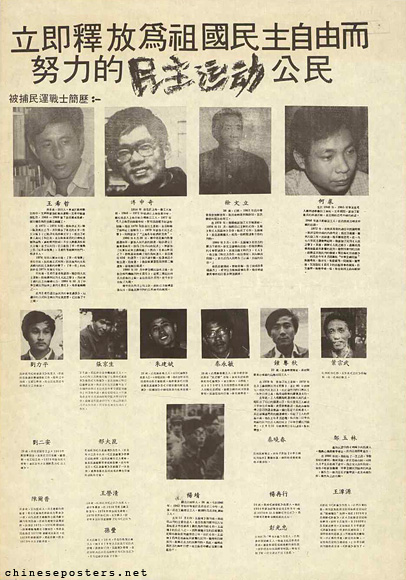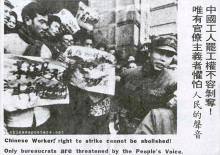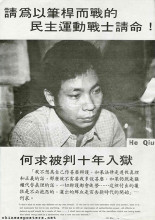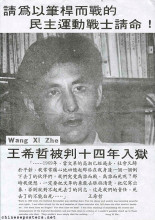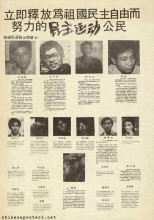Immediately release the citizens who strive for democracy and freedom for their homeland, 1982
The Democracy Movement became visible late 1978, when people started putting up big-character-posters on a brick wall on Xidan street, Beijing, pleading for less bureaucracy and more democracy. The wall became known as the Democracy Wall (西单民主墙). The movement was tolerated by Deng Xiaoping for some time. Similar walls appeared in other cities, and a large number of unofficial journals started to appear. They were widely distributed and became very popular. Sensitive topics were addressed, such as the violence during the Cultural Revolution. Even Deng and the Party leadership were criticized.
The lively debate was brought to an end in the course of 1979. The Wall was moved to a small park in Western Beijing, and people who wanted to post anything were obliged to register their name and address with the authorities. By fall, many of the movement's leaders and the journalists/publishers of the unofficial journals were arrested, tried and sentenced to long prison terms. From then on, all debate had to be held within the restrictive framework of Deng's Four Basic Principles.
Outside China, starting in Hong Kong, protests and campaigns to release the imprisoned activists and journalists were organized. The Party apparently was not impressed very much by these. It had made its point and stuck to it: public debate would be ended by force when it became inconvenient.
